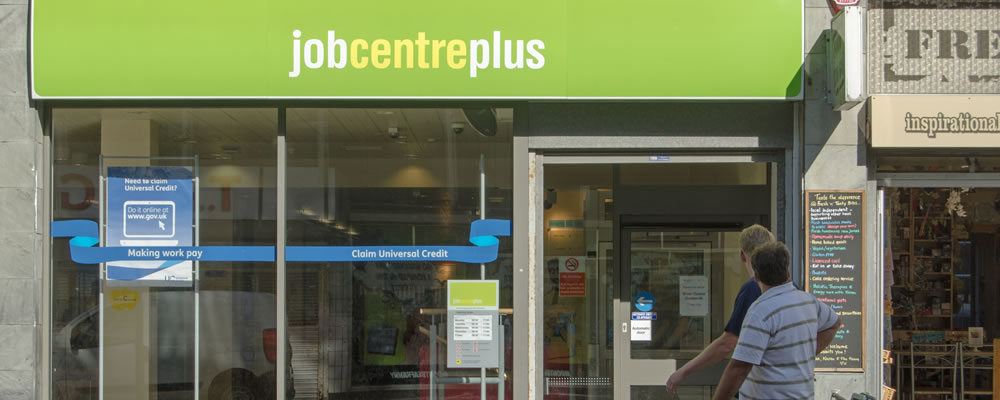- Pound Sterling Euro Exchange Rate Above 1.17 – Edges towards 1.18 on Thursday
- UK Wage Growth Slows – UK employment change lower than expected too
- German Inflation Data Solid – Final March CPI figures meet projections
- Forecast: UK Retail Sales Next Week – UK calendar largely quiet until then
Pound Sterling Euro Exchange Rate Holds 1.17 Highs on Thursday
While the Pound Sterling Euro exchange rate still has yet to touch on the key level of 1.18 this week, the pair looks to end the week well above its opening levels.
Sterling trade may cool on Friday as UK markets close for the long Easter weekend, but Eurozone political jitters are likely to prevent GBP EUR from shedding its gains.
The Euro is likely to see political jitters throughout next week’s trade session too, as the first round of the French Presidential election draws near.
Britain’s economic calendar will be relatively quiet, meaning next week’s Pound Sterling Euro exchange rate movement will be largely influenced by Euro trade.
[Previously updated 12:53 BST 13/04/2017]
Despite analyst concerns about Britain’s slowing wage growth, the Pound Sterling Euro exchange rate tested its best levels since February on Thursday morning.
While GBP EUR lacked the momentum to push ahead to the key level of 1.18, the pair got close on multiple occasions throughout the morning.
Demand for the Euro was largely unchanged on Thursday due to unsurprising data, which helped the Pound to hold most of this week’s gains.
Germany’s final March Consumer Price Index (CPI) results met projections, coming in at 0.2% month-on-month and 1.6% year-on-year.
[Published 06:00 BST 13/04/2017]
Wednesday saw the Pound Sterling Euro exchange rate edge higher slightly, but due to mixed UK employment data the Pound may struggle to advance much further this week. The Euro continued to be pressured by political jitters.
GBP EUR has gained over half a cent since opening this week at the level of 1.16. The pair has been able to recover most of last week’s losses and trend comfortably in the region of 1.17 and even neared the key 1.18 level on Wednesday.
Pound (GBP) Recovery Slows as Investors Digest Wage Growth Data
While the Pound has continued to benefit and hold its ground thanks to investors avoiding currencies tied to current political uncertainty, it slowed notably on Wednesday following a surge on Tuesday afternoon.
Wednesday’s UK data largely revolved around Britain’s job market and the results were mixed, which dampened Sterling demand.
The main focus for GBP traders was the latest wage growth results. Average earnings slowed from 2.4% to 2.2% excluding bonus and remained at 2.3% including bonus.
While these results actually beat expectations, they did indeed indicate that Britain’s real wage growth was still slowing as analysts had warned.
An increasing number of analysts have stated that as inflation rises and wage growth falls, household spending will fall which could damage Britain’s growth prospects.
Frances O’Grady from the TUC warned on Wednesday that unless something is done, UK living standards could come into crisis;
‘Pay packets are taking a hammering from rising inflation and falling wage growth. We now need urgent action to stop another living standards crisis. Working people will want to know when Theresa May is going to do something to help.’
The day’s other UK employment stats did little to improve the outlook either. Britain’s February employment change came in at 39k, well below the projected 70k.
Additionally, the latest jobless claims data indicated that there had been a surge in citizens seeking job seeker benefits in March. This saw the claimant count rate worsen from 2.1% to 2.2%.
Euro (EUR) Fails to Benefit from Mixed UK Data on Political Jitters
Despite the Pound weakening on Wednesday, political jitters continued to weigh on the Euro ahead of this month’s first round of the 2017 French Presidential elections.
This week has seen far-left Eurosceptic French Presidential candidate Jean-Luc Melenchon surge in popularity, overtaking conservative Francis Fillon for third place according to opinion polls.
Far-right anti-EU Marine Le Pen and centrist pro-EU Emmanuel Macron remain the favourites to win the first round of the election, but Melenchon’s rise in popularity has caused investors to become concerned that the second round could see two Eurosceptics going head to head.
If either Le Pen or Melenchon were to win the Presidency, uncertainty about France’s future in the Eurozone would cause the shared currency to plummet which has left the Euro jittery this month.
Rising diplomatic tension between the US and Russia, as well as rising US-North Korea tensions, have also added to the market’s geopolitical anxiety this week.
With currencies involved with near to mid-term political uncertainty becoming highly unappealing, GBP EUR has been able to hold most of this week’s gains.
Pound Sterling Euro Forecast: German Inflation Stats Ahead
This week’s most influential UK and Eurozone datasets have come and gone, but as most of this week’s GBP EUR movement had little to do with domestic stats that may not matter much.
Political anxiety remains a hot topic this week. If tensions cool between the US and other nations in the coming days markets may relax and this could see the Pound fall from its highs.
However, with Brexit negotiations not expected to begin until May or June the Pound’s downside risks are slightly lower for the time being, making it appealing if political concerns continue to weigh on the Euro.
As the first round of the French election (which will be held in late-April) continues to draw near, Euro jitters will only worsen even if polls continue to indicate that pro-EU Macron could win the election.
As for economic data, Thursday will see the publication of Germany’s final March Consumer Price Index (CPI) results. German inflation is projected to meet preliminary figures of 0.2% month-on-month and 1.6% year-on-year.
A better-than-expected German inflation result could bolster the Euro’s strength and cause the Pound Sterling Euro exchange rate to fall on Thursday.



